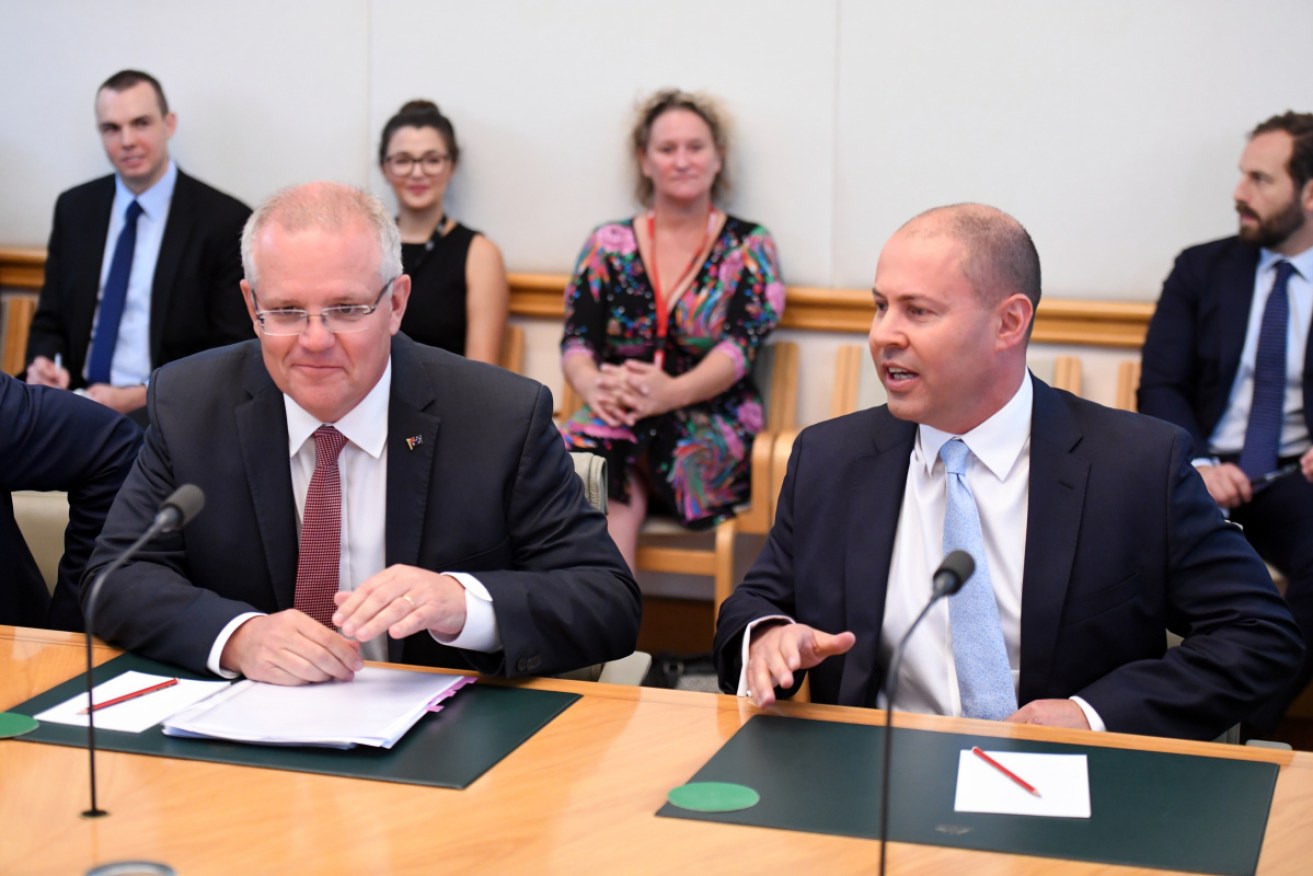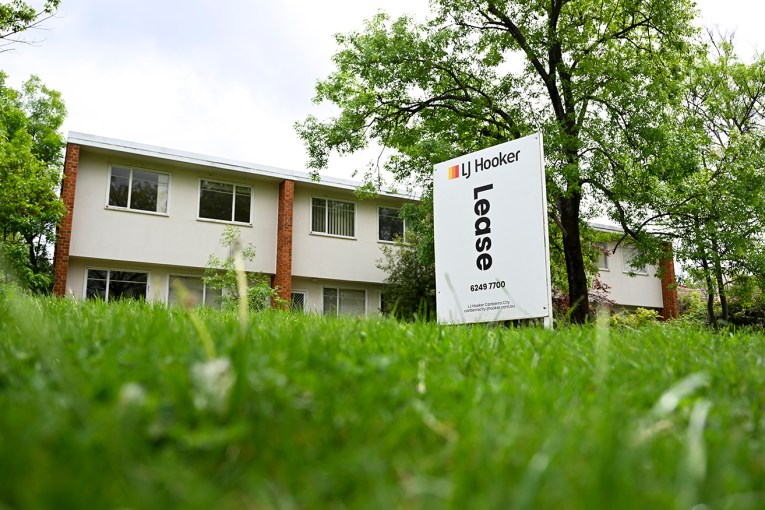Chequered evidence for Treasurer’s ‘housing tax’ claims


Prime Minister Scott Morrison and Treasurer Josh Frydenberg at the housing round table. Photo: AAP
Treasurer Josh Frydenberg is relying on property industry-sponsored research to support claims that Labor’s proposed reforms to investor tax breaks would drive up rents and derail the economy, The New Daily can reveal.
The Treasurer issued a “housing tax warning” following a ‘housing industry round table‘ at Parliament House last Monday, attended by property industry and investor interest groups, with renters, first-home buyers, and affordable housing advocates notably not invited.
“Bill Shorten must listen to the experts, admit Labor got this one wrong and ditch their big new housing taxes,” Mr Frydenberg said following the meeting.
However, when questioned by The New Daily, Mr Frydenberg’s office was unable to provide the names of any economists or housing academics from Australian universities whose research supports the Treasurer’s claims that Labor’s proposed policy of limiting negative gearing to new homes and reducing the capital gains tax discount from 50 to 25 per cent will “have a significant detrimental impact on Australia’s housing market and the broader economy”.
Mr Frydenberg’s claims that the reforms would drive up rents and tank the economy have been dismissed by academics, tenants groups, and affordable housing organisations as a “scare campaign“.
Despite failing to provide any non-industry-sponsored evidence in support of his claims – ignoring repeated requests from The New Daily – the Treasurer doubled down, claiming the government had the backing of a “growing list of independent economists”.
“By ending negative gearing as we know it and putting up the capital gains tax rate by 50 per cent, Labor’s policies increase the after-tax cost of providing housing,” Mr Frydenberg said.
“This is a tax on housing. It’s not just the government warning against Labor’s housing taxes, there is a growing list of independent economists and property analysts slamming Labor’s plan and highlighting the threat it poses to the housing market and broader economy.”
Master Builders report props up Treasurer’s claims
The sole piece of research the Treasurer’s office provided to The New Daily in support of Mr Frydenberg’s claims was a controversial report commissioned last year by Master Builders Australia (MBA).
The report has been criticised for not taking into consideration a key component of Labor’s proposed policy.
In 2018, MBA chief executive Denita Wawn conceded the modelling relied upon in the report did not take into account a key aspect of Labor’s policy which is to “grandfather” the reforms – meaning the changes will only apply to future investment properties bought after a yet-to-be-determined date, and that investors currently benefitting from negative gearing will continue to do so.
Shadow Treasurer Chris Bowen defended Labor’s proposed reforms as “sensible” and “moderate”.
“If you already use negative gearing, nothing changes. It’s not retrospective. And you can still use it for new houses,” Mr Bowen said.
“We’re making a change to the tax loophole so it’s not easier for a property speculator to buy his seventh or eighth house than a young Australian who can’t buy their first home.”
Mr Bowen said the reforms would save the budget money, which Labor would use to “fix schools and hospitals”.
Who benefits most from negative gearing?

Zed Seselja and Josh Frydenberg at the housing round table. Photo: AAP
The government has also been accused of obfuscating the truth when it comes to which Australians benefit the most from negative gearing.
Following last week’s housing round table, Assistant Minister for Finance Zed Seselja, who refused to answer questions put to his office by The New Daily about his role in teeing up the Parliament House summit between property industry interest groups and the Prime Minister and Treasurer, said Australians who “negative gear or make a capital gain are not rich”.
“Two in three people who negative gear have a taxable income less than $80,000 and most own just one investment property,” Mr Seselja said.
“More than six in 10 of those tax filers making a capital gain have a taxable income under $80,000. This includes tradies, farmers, nurses, teachers and hard-working families who save and invest to get ahead.”
Grattan Institute budget policy director Danielle Wood said that it was “confusing, bordering on misleading” for the government to talk about “the distributional effects of the policy in this way”.
“Around 60 percent of negative gearers have taxable incomes less than $80,0000 but so do 80 percent of Australians. And this also ignores the fact that negative gearers have lower taxable incomes because they are negatively gearing,” Ms Wood said.
While it is true that some lower-income Australians negatively gear, negative gearing is “more common and the tax benefits are much larger for those on higher incomes,” Ms Wood pointed out.
“For example, the share of anesthetists negatively gearing is almost triple that for nurses, and the average tax benefits they receive are around 11 times higher,” she said.
“Overall, the top 10 per cent of income earners receive almost 70 per cent of the capital gains and 50 per cent of the tax benefit from negative gearing after you adjust their incomes for rental losses.”
This is the final part of a three-part series analysing the government’s housing summit and negative gearing claims. Click here to read part one, and part two.








